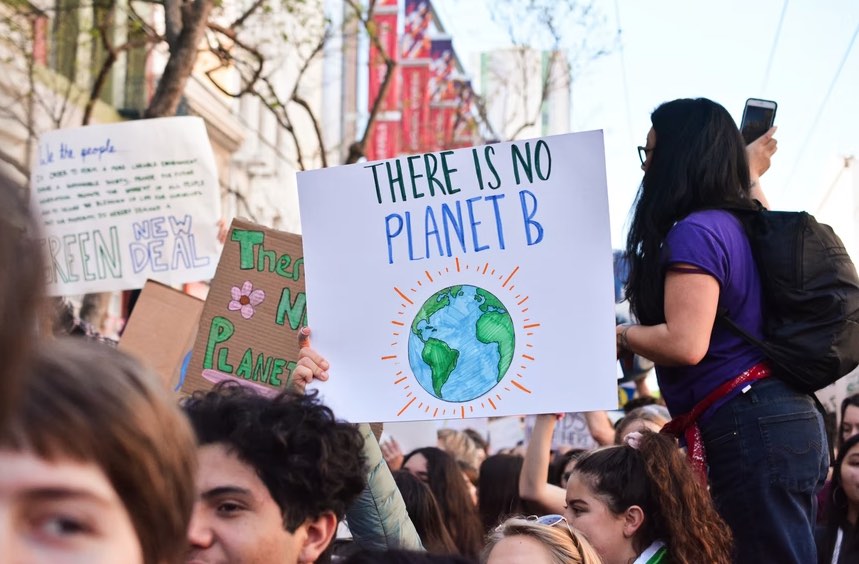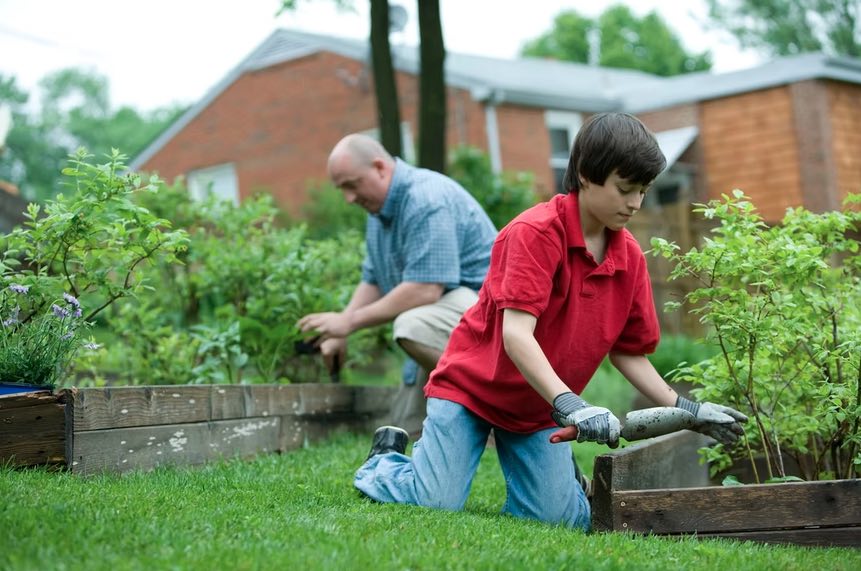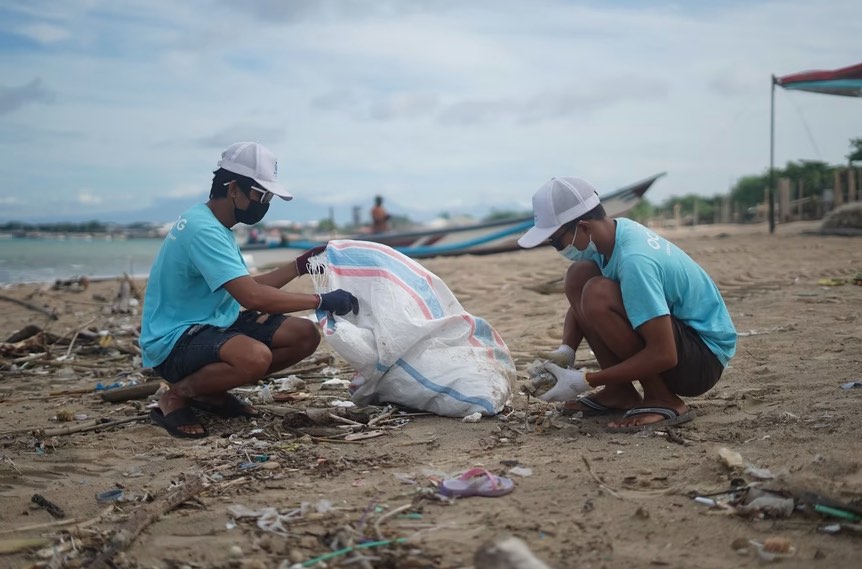Our earth is our home and the location that provides for our survival, but do we manage to coexist peacefully with the natural world? It would appear that we humans have chosen the road that leads to our own destruction by harming the very environment that provides us with a home. The consequences that our activities have on our ecosystems and the biodiversity of our environment are negative, and these repercussions include increased carbon emissions, deforestation, and the deterioration of land. The United Nations General Assembly proclaimed the years 2011-2020 to be the “Decade for Biodiversity,” yet not many people are aware of this fact. We are now entering the final few years of this very important decade. In spite of the fact that we have a range of strategic plans and initiatives in place to engage people on a variety of levels, we are still very far behind the targets that we have set. The alarming downward trends in ecosystems and biodiversity conservation point to the fact that we need to step up our efforts significantly.
Do you have absolute certainty that you are aware of the specific actions that you may do in your life to demonstrate your care for the environment? Many of us have the misconception that the way we live our life demonstrates reverence for nature, but the truth is shown by our consumption patterns. There are a lot of tiny practices that seem to be sustainable that actually pollute the environment. We are going to walk you through the five common blunders that are the most detrimental to the well-being of our planet.
We are all consumers, whether it is of gasoline, food, clothing, automobiles, furniture, water, toys, electrical equipment, knickknacks, or other types of things. The important thing is not to give up purchasing things but to become more conscious of our consumption patterns and the impact that each purchase and action has on the environment.
The encouraging news is that becoming more environmentally friendly does not have to be overly challenging, expensive, or inconvenient in most cases. Implementing it with your family or the people you work with can even be a fun and exciting endeavor. Even if it might not seem important to make adjustments at the individual level, just consider how much cleaner the world would be if everyone adopted even a handful of the following behavior tweaks.
Ways To Protect The Environment
Consume Less
Consumption reduction can have a significant positive effect on the global environment. The first three “R’s”—reduce, reuse, and recycle—get a lot of attention. However, the planet could advantage from some focus on the fourth “R,” which is both the most crucial and the most underrepresented.
To refuse anything means to answer “no,” which is not always an easy thing to do. Nothing you get for free at events, anything you buy on discount for a steal of a deal, the hottest new toys for kids, or the most cutting-edge technology that promises to make your life easier: none of these things are necessary. And the vast majority of the time, they wind up either in the garbage or stashed away somewhere in the depths of a closet. Therefore, the next time you are tempted to buy or accept anything that is not required, think about whether or not it will actually make your life better. If not, it is OK to just respond with “Thank you very much!”
A bonus is that if you say no to things that aren’t necessary for your life, it can help you save money and cut down on the number of clutter in your house.
Reuse and Recycle
The greatest positive impact a person can have on the environment is achieved when they cut down on the amount of “things” they use. However, as it is preferable not to produce waste in the first place, you should give great consideration to the things that you buy.
What do you do with your outdated books, such as your textbooks and novels, when you no longer need them? Why not give them away to younger people or children who live in your neighborhood? Alternatively, you might send them to countries in which children have limited or no access to educational materials. Even though the books on a bookshelf aren’t doing any damage by simply sitting there, why don’t we recycle them and save some resources?
If you can’t turn it down, you can’t let it decay, and you can’t cut it down, then you have no choice but to accept it. If you are unable to repurpose it or upcycle it, then it is time to move on to the third and final “R”: recycling. First things first, become knowledgeable about what items can and can’t be recycled in the bins you have at home. If you place the incorrect materials in the recycling bin, the entire load can be rejected, which would mean the trash would have to be taken to the landfill.
You may also simply find out how to recycle unique products such as electronics, batteries, and appliances. This information is freely accessible. Make an effort to deliver your stuff to the appropriate disposal sites, and check with your local municipality to find out where drop-off facilities are located.
In a similar vein, recycling paper that is no longer needed would lower the raw material demand for paper manufacture, which will ultimately result in the preservation of trees as well as forest ecosystems. Paper is not something that is required any longer thanks to the development of technology. This applies to everything from submitting homework assignments online to taking electronic tests. We are able to easily transition away from activities that require paper at all levels by making use of advanced technologies that are readily available today.
When you reuse products, you not only save money but also the natural resources, energy, and money that are needed to produce new ones.
Compost
Rot is another letter that begins with the letter “R” that does not receive a lot of attention but has significant ramifications for the environment. To avoid having your food and yard waste sent to a landfill, you should instead bury it in the ground where it can decompose naturally. To put it another way: compost.
Composting your leftover food and yard waste not only generates free, nutrient-dense soil for your garden but also diverts a significant quantity of garbage away from the municipal waste stream, which is a major environmental benefit. In addition, garbage and recycling collection services in some cities have been expanded to include a collection of organic waste. You need not worry if this service is not available in your region because you can easily create a compost pile in your own backyard that requires no upkeep.
Only Buy What You Need
Finally, give some thought to the ways in which you often shop. Do you purchase an excessive amount of goods? Are there any of the things that you frequently buy that you could live without? Are you a conscientious consumer? Simply purchasing more as a result of more alluring offers or discounts will actually result in increased costs for both us and the environment. You cut down on the quantity of waste that is generated, and as a result, pollution, if you buy things for the house, clothes, accessories, or groceries that are more sustainably produced. Because the earth’s natural resources are finite, the wasteful consumption that humans engage in might have unintended consequences and reduce the planet’s biodiversity.
Decrease Meat & Dairy Consumption
The emission of methane into the atmosphere is one of the most significant contributors to the warming of the planet. Over the past few decades, there has been a huge rise in the number of livestock farms in response to the growing demand for meat. Consuming an excessive amount of meat and dairy products has a negative impact on the environment due to the massive volumes of methane that are produced by cattle and released into the atmosphere. In addition, dairy and cow farming that is not conducted in a sustainable manner leads to the deterioration of environmentally significant places such as wetlands and forests. The clearing of land that is necessary in order to house animals like cows and chickens causes damage to natural ecosystems and habitats, which are home to hundreds of species that are dependent on one another for existence. As a result, the only way for us to stop more damage is to act responsibly and reduce the amount of meat and dairy products we consume.
Buy Local
While we are discussing shopping, it is essential to keep in mind the journey that each of your purchases must make before they can be delivered to you. The amount of fuel required for delivery, in addition to the impact of all that unnecessary packing, has a significant negative impact on the environment. Instead of clicking on the two-day delivery link, visit your neighborhood farmer’s market for locally grown, unpackaged food; eat at a restaurant that serves food directly from the farm; and support your community’s artists, apparel makers, and merchants by making purchases from them.
Use Fewer Chemicals
Do you wish to preserve the natural world? Reduce your consumption of potentially hazardous chemicals, and you’ll be on the correct path. Because it is difficult to know for certain the adverse effects that chemicals can have over the long term, both on our bodies and on the planet, it is advisable to steer clear of them whenever it is practical to do so. Instead, go for organic foods, chemical-free lawn, and garden care, all-natural cosmetics and hygiene products, natural cleaners for the home, and natural household cleaners. You will earn the gratitude of the planet!
Plant Pollinator-Friendly Plants
During the spring, you may provide assistance to butterflies, moths, and other pollinators without spending a fortune by placing a container of nectar plants on your front porch, balcony, or backyard garden.
You do not need a garden or green fingers to cultivate a plant that will help our suffering butterflies and bees. The Pollinator Project is something that anyone can get involved in.
Buy Sustainable Products
Plastic is one of the most important contributors to soil and marine pollution, putting land and marine life at peril. Plastic is one of the leading major contributors to soil and marine pollution. Plastic is not capable of being broken down by natural processes and is frequently ingested by creatures who misinterpret it for food. When purchasing a product, it is important to consider both its influence on the environment and how it should be disposed of after usage. Corporations are now being questioned on their environmental impact, and shifting customer preferences are forcing them to become more environmentally responsible. Today, consumers may choose from a number of eco-friendly companies, and it is simpler to obtain information on the provenance, composition, and recyclable nature of many products. When you are shopping for school or office equipment like folders and pens, as well as toys and home items, try to look for more eco-friendly options that can substitute plastic. This is especially important if you live in a very environmentally sensitive area. For instance, some of us go through a lot of plastic because we buy bottled water on a daily basis, despite the fact that purchasing your own refillable water bottle is not only more cost-effective but also much more environmentally friendly.
Additionally, purchasing goods and products that are produced locally is an excellent approach to reducing one’s carbon footprint. This is because the commodities do not have to travel far distances, which reduces the amount of fuel required for their transportation. Carry out some investigations and learn as much as you can about the natural food stores and farms located in your region. When you support local small businesses, you are helping to maintain economic growth and job development in your community, which is a significant benefit for the local economy.
Use Less Water
One of the simplest things people can do to help the environment is to reduce the amount of water they use in their homes. Firstly, consider all of the times, both within and outside your home, that you drink water. Once you’ve done so, make any necessary alterations. Take, for instance:
- While you clean your teeth, please make sure the water is turned off.
- Take care of dripping faucets.
- Aerating faucets, utilizing sprinklers that limit runoff and installing low-flow toilets and efficient showerheads are all ways to improve the efficiency of your water use and reduce your overall water use.
- Rainwater should be collected and used for watering plants whenever possible.
- Reduce the length of your shower by just a few minutes, or do without it entirely if you don’t feel like you need one on that particular day.
- Never run your washing machine or dishwasher unless they are completely full.
These are just some of the fundamentals; there is a lot of room for innovation when that comes to lowering water use.
Conserve electricity
It should come as no surprise that we think highly of this strategy for preserving the natural world. If you can find ways to reduce the amount of electricity you consume, you will be helping the environment. Consider implementing some of the simple energy-saving strategies listed below around your house:
- Make the switch from incandescent to more energy-efficient CFLs or LEDs in your light bulbs.
- Make use of smart power strips, which cut off the flow of electricity to electronic devices when they are not being actively utilized. (Or, when an item is not in use, simply disconnect the power cords from the wall outlet.)
- Utilize a thermostat that can be programmed or is smart.
- Your heating, ventilation, and air conditioning (HVAC) system needs regular maintenance.
- When it comes time to replace an old appliance, look for one that has earned the Energy Star certification.
- Around doors and windows, caulk any air leaks you find.
- Make sure that your house is adequately insulated to the level of temperature resistance (“R-value”) that is suggested for the area in which you reside.
- In the winter, ceiling fans can be used to circulate warm air, and in the summer, they can be used to circulate cool air.
Start Your Own Initiative or Volunteer With Environmental Organizations
Taking actions to protect the environment can have a big influence, whether those actions are on a smaller scale, such as organizing a community cleanup, or on a larger one, such as founding a huge social organization with substantial reach and impact. There are a lot of great environmental groups and NGOs led by young people all around the world right now, and they are setting an example for others to follow. On the other hand, if you don’t think you have what it takes, you can still have an effect on the environment by volunteering with environmental community groups and getting engaged with local non-profit organizations. There are a variety of methods to get involved, including organizing internet awareness campaigns, providing hands-on assistance in the form of beach cleanups, and participating in fundraising activities.
Stay Informed
Most of us are captivated by the many screens we have during the day while we are relaxing at home. However, we have access to any and all information that we would ever require at the tip of our fingers, so we should make the effort to read credible sources and remain aware of the ways in which the world is shifting around us. Being aware of your surroundings is one of the most effective methods to have an effect on the world around you. Knowledge is power.
Both the financial costs of managing trash and the environmental costs of cleaning up after it and the costs of pollution can be reduced by taking preventative measures (health problems and environmental damage). Additionally, pollution prevention safeguards the environment by preserving and guarding natural resources, thereby bolstering economic growth. This occurs as a direct result of increased productivity in industrial settings, as well as a decreased demand placed on households, companies, and communities to manage waste.
We all call this planet home, yet we don’t own it individually. However, you can make a difference by lowering your carbon footprint, recycling more frequently, and investing in alternative energy sources such as solar power. These are some of the ways you can help.
Frequently Asked Questions About Environment
Why is nature so important?
It is the cornerstone of not only our business and society but also our basic existence. The water that we use to irrigate our crops comes from the water that comes from our rivers, oceans, and forests. The air that we breathe comes from our trees. But because it does not cost us anything, we tend to take nature for granted and overuse its resources.
Why should we protect our environment?
helps to preserve our ecosystem. Our ecosystem would not be able to survive without the protection and support provided by our surroundings. If we do not take measures to preserve and care for our environment, we endanger the lives of a great number of living things, including animals, plants, and crops, as well as our own. All of the ecosystems that comprise our environment are intricately intertwined with one another.
Who is responsible for environmental issues?
Despite the fact that 57% of Republicans believe that individuals should be responsible for the environment, 2/3 of Independents and Democrats believe that the environment is the responsibility of the government.


